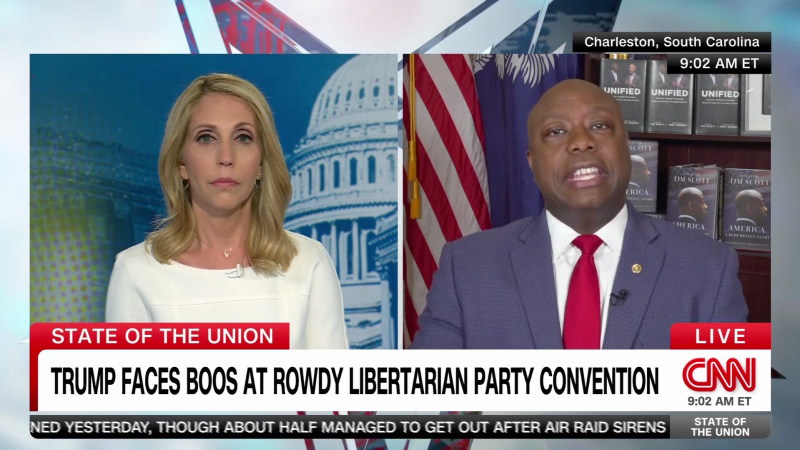Sen. Tim Scott, a potential vice presidential candidate for the 2024 election, was questioned by CNN’s Dana Bash about former President Donald Trump’s comments regarding the FBI’s search of Mar-a-Lago in a classified documents case. Trump had falsely claimed that the FBI was “locked and loaded, ready to take me out” during the search. The FBI, however, stated that similar language was used in the search warrant for President Biden’s home. Despite this discrepancy, Sen. Scott did not condemn Trump’s rhetoric on the matter.
The comments made by Trump regarding the FBI’s search of Mar-a-Lago raised concerns about the former president’s ongoing attacks on the FBI and other law enforcement agencies. By falsely claiming that the FBI was prepared to harm him during the search, Trump perpetuated a dangerous narrative that undermines the work of these agencies in upholding the rule of law. Sen. Scott’s refusal to criticize Trump’s remarks on the matter further highlights the division within the Republican Party regarding support for Trump and his controversial statements.
In response to Bash’s questioning, Sen. Scott avoided directly addressing Trump’s false claims and instead focused on the need for oversight and accountability in law enforcement operations. While Sen. Scott acknowledged the importance of ensuring that agencies like the FBI adhere to their legal constraints, he stopped short of condemning Trump’s inflammatory language. This hesitation to challenge the former president’s rhetoric suggests a reluctance on the part of some Republican leaders to openly criticize Trump, even when his statements may be misleading or harmful.
The controversy surrounding Trump’s comments on the FBI’s search of Mar-a-Lago underscores the broader debate within the Republican Party about the influence of the former president and his impact on the party’s future direction. As potential candidates for the 2024 election, figures like Sen. Scott are navigating a delicate balancing act between maintaining loyalty to Trump and addressing concerns about his divisive rhetoric. The refusal to outright condemn Trump’s false claims highlights the challenges faced by Republican leaders in reconciling their support for Trump with the need to uphold the integrity of law enforcement institutions.
In failing to denounce Trump’s misleading statements about the FBI’s search of Mar-a-Lago, Sen. Scott’s response reflects a larger trend within the Republican Party of downplaying or ignoring controversial remarks made by the former president. This reluctance to challenge Trump’s narratives may have long-term implications for the party’s credibility and ability to hold its members accountable for their words and actions. As the 2024 election approaches, Republican leaders like Sen. Scott will face increasing pressure to demonstrate their commitment to truth and integrity in the face of political rhetoric that seeks to undermine public trust in institutions like the FBI.
Ultimately, Sen. Scott’s refusal to condemn Trump’s rhetoric on the FBI’s search of Mar-a-Lago highlights the challenges facing the Republican Party in navigating its relationship with the former president. As the party grapples with internal divisions over Trump’s influence and controversial statements, leaders like Sen. Scott will need to carefully consider how their responses to such incidents shape the party’s image and credibility. With the 2024 election on the horizon, the Republican Party faces a crucial test of its ability to address concerns about truthfulness and accountability while maintaining loyalty to its base of supporters.













